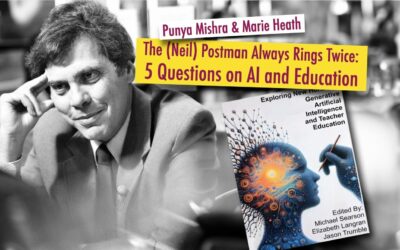I love reading. I love watching movies. I love over-analyzing books and movies, seeking to find pattern and structure, motifs and motives. I love to break them down in my mind and put them back together again. I read reviews of books and movies by the ton, sometimes while reading the book or watching the movie. It allows me to get another perspective on the book or the movie and I find that it enriches my reading/viewing. I have over time developed, what I think is, an independent mind and taste, what Schon has called an “inner gyroscope” that allows me to read other people’s views on a book or a movie and still maintain my own sensibility and response.
All this fails when I get to video games. I do not play video games and not because I haven’t tried. I find them hard to engage with, difficult to master (the mapping between mashing buttons and the action on screen seems just too arbitrary) and too much of a demand on my time (which I have very little of to spare). So when I read about how video games are the new medium of creativity and expression – I have a wistful feeling of loss. I read the words but there is no real-world referent to which I can personally connect to.
This was brought home to be very strongly in reading this article in the New Yorker by Tom Bissell titled The Grammar of Fun: CliffyB and the world of the video game. For instance consider this paragraph describing Gears of War I:
What is sophisticated about Gears is its mood. The world in which the action takes place is a kind of destroyed utopia; its architecture, weapons, and characters are chunky and oversized but, somehow, never cartoonish. Most video-game worlds, however well conceived, are essenceless. Gears felt dirty and inhabited, and everything from the mechanics of its gameplay to its elliptical backstory was forcefully conceived, giving it an experiential depth rare in the genre.
In some ways I do get “older-styled” games like Super Mario Brothers. But the aesthetic dimension of some of the newer games is something I feel I can read and understand at a cognitive level, but can’t truly appreciate! For instance here is another paragraph from the article, speaking about how players can develop “a kind of intuition” about the game.
Super Mario requires an ability to recognize patterns, considerable hand-eye coördination, and quick reflexes. Gears requires the ability to think tactically and make subtle judgments based on scant information, a constant awareness of multiple variables (ammunition stores, enemy weaknesses) as they change throughout the game, and the spatial sensitivity to control one’s movement through a space in which the “right” direction is not always apparent. Anyone who plays modern games such as Gears does not so much learn the rules as develop a kind of intuition for how the game operates. Often, there is no single way to accomplish a given task; improvisation is rewarded.
That is truly exciting as an idea about learning from game like experiences – but one that I seem unable to experience, and that is frustrating. I guess I am getting old!


0 Comments